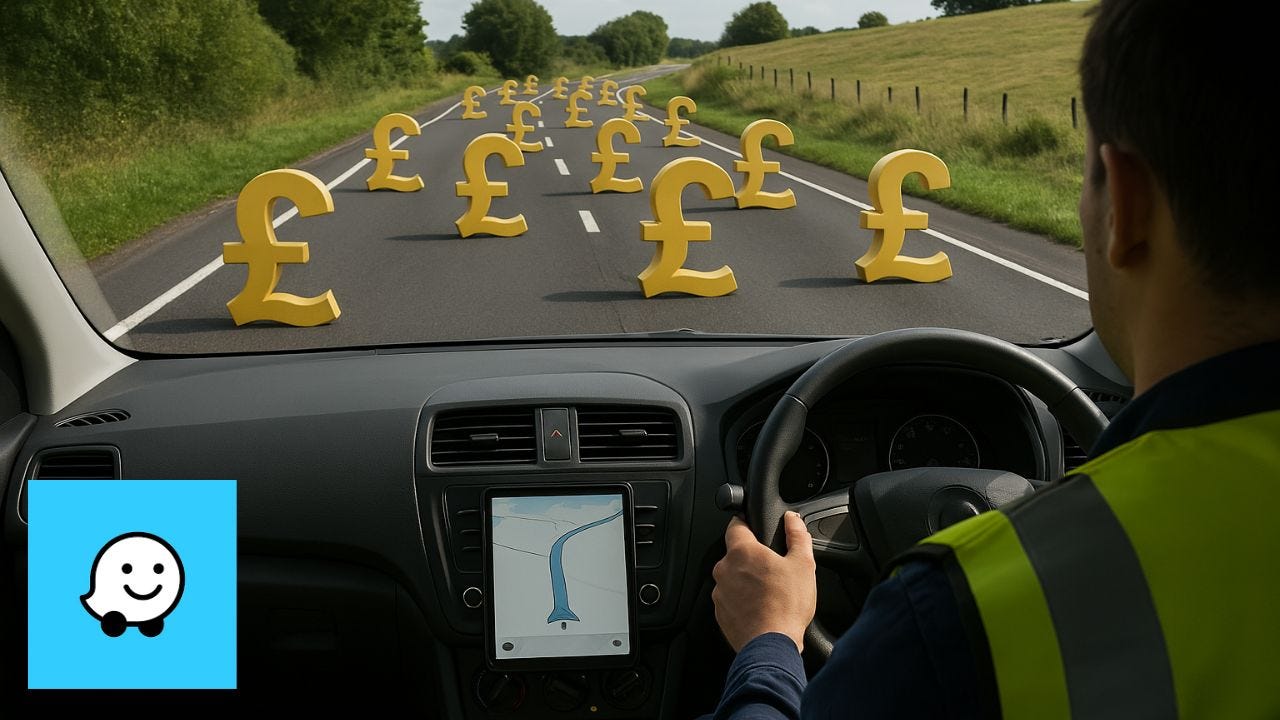There are Waze to avoid financial fallout
Is collective input the financial protection the UK demolition and construction sector supply chain has been seeking?
When construction giant Carillion collapsed in 2018, it did so with debts of £2 billion owed to more than 30,000 suppliers.
By the time that ISG folded in 2024, it had amassed debts of more than £1.1 billion. At the time of the collapse, it was about to post a pre-tax loss of £138 million.
Closer to home, when demolition contractor Squibb Group went under, it did so owing more than £24 million.
In each instance, creditors had little prospect of recouping any of the monies owed.
And this is just the tip of the iceberg. Over the course of the past year or so, around 5,000 UK construction companies have slipped beneath the surface. Many of these will have done so with debts, some of them hefty. Those debts will have had a significant impact upon the entire supply chain, from plant hirers and scaffolders to piling contractors to recruitment companies.
Now I could ramble on about how this typifies the boom and bust cycle of construction. I could hold forth on how this is a reflection upon the wafer-thin profit margins within the sector. I could wax lyrical about how none of these major collapses has led to any kind of shift in the way in which this industry does business. And I could also question just how many of the directors involved in all of this bounced back, seemingly unscathed, to start afresh while their supply chain was left to carry the can.
But I am going to take a different approach in this instance. And for my inspiration, I am going to use the satellite navigation app, Waze.
Waze started life as FreeMap Israel and, at heart, it is a satellite navigation system for smartphones and other devices and computers.
But Waze has a trump card; an additional trick up its electronic sleeve. And it is that trick that I think could be applied to the finances of the demolition and construction sector.
You see, Waze is powered by and used by drivers all over the world. If you are driving with the Waze app open, it monitors your travel speed to get a real-time indication of traffic flow. More than that, if drivers spot a hazard or are stuck in a traffic jam, they can report it through the app to provide an early warning to others on the same route.
And that, in a nutshell, is how I envisage a financial monitoring system for the UK demolition and construction sector. Not one run by the banks or by financial institutions that might have a vested interest in keeping vital information under wraps; but a system run by and used by the UK construction supply chain.
In this instance, rather than reporting a traffic jam or a broken-down car by the side of the road, users could report late payments, or unexpected requests for extended credit. They could report when financial promises of part or full payments were broken. They could report if they get wind of a sudden exodus of staff. In fact, they could use this financial Waze to raise multiple red flags to alert fellow suppliers to approach with caution.
Taken in isolation, these individual red flags might mean nothing at all. But a sudden surge in red flags might be just the advanced warning system the demolition and construction supply chain has been crying out for.
This isn’t just about information; it’s about survival. The construction industry is driving at full speed into an economic minefield, yet it does so blindfolded. Every subcontractor, supplier, and specialist firm is effectively navigating in the dark, relying on good faith and wishful thinking to keep them out of harm’s way. But faith and optimism don’t pay the bills.
Imagine if we took that blindfold off. Imagine an industry where businesses shared real-time warnings about financial instability. Imagine a system where a delayed payment in Manchester could serve as an early warning for a contractor in London. Imagine a network where no one had to wait until the next collapse to find out that the warning signs had been there all along.
Of course, none of this would prevent company collapses. All the while we allow company directors to fold one company, start another and then repeat that same process time and time again, those company collapses will continue. But such a system might ensure that more of the supply chain is outside the blast zone when a big company implodes.
The next collapse is inevitable. The names will change, but the devastation will remain the same. Suppliers will suffer, jobs will be lost, and the cycle will repeat. The industry needs to wake up, take control, and build a financial early-warning system before more companies crash and burn. The time for blind faith is over. Either we start looking out for each other, or we brace for impact.





